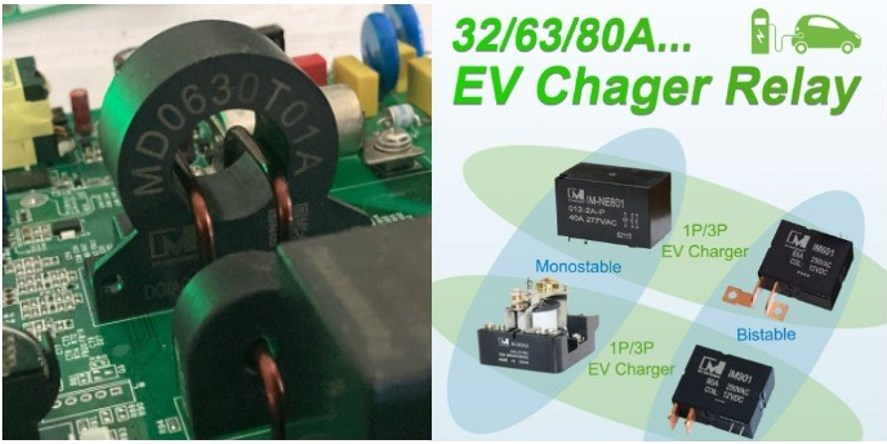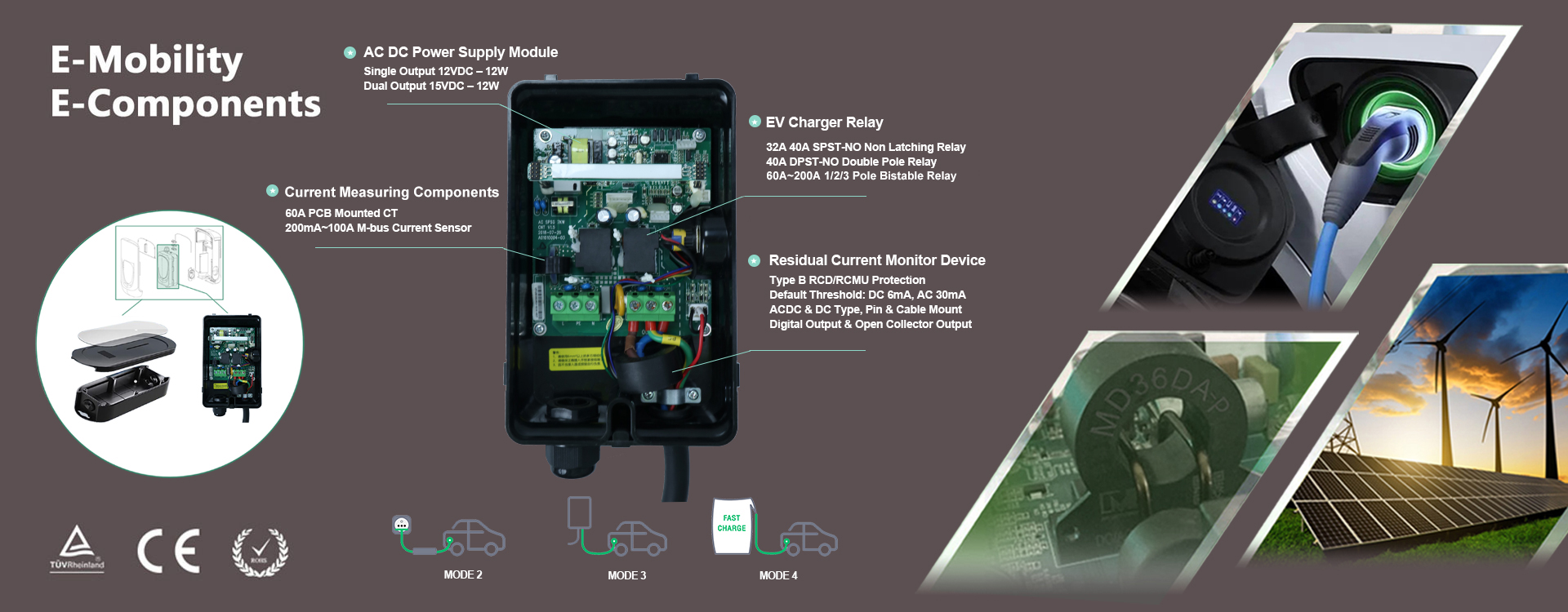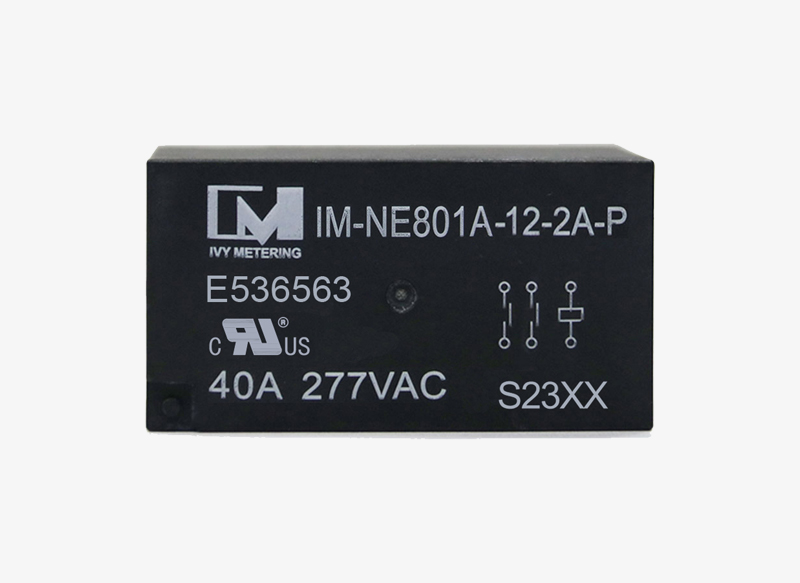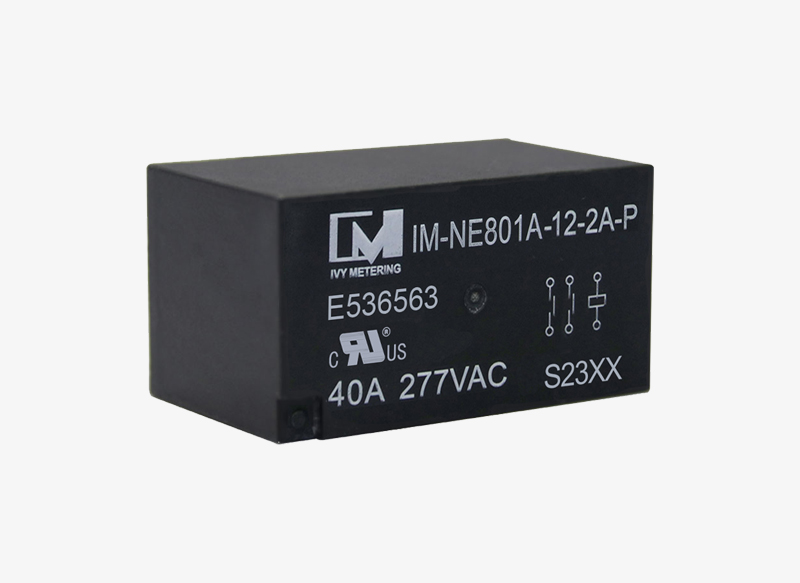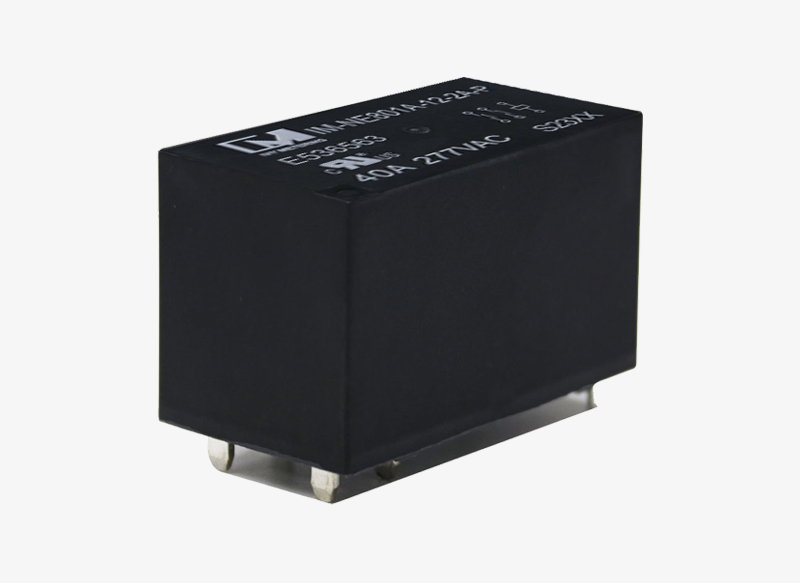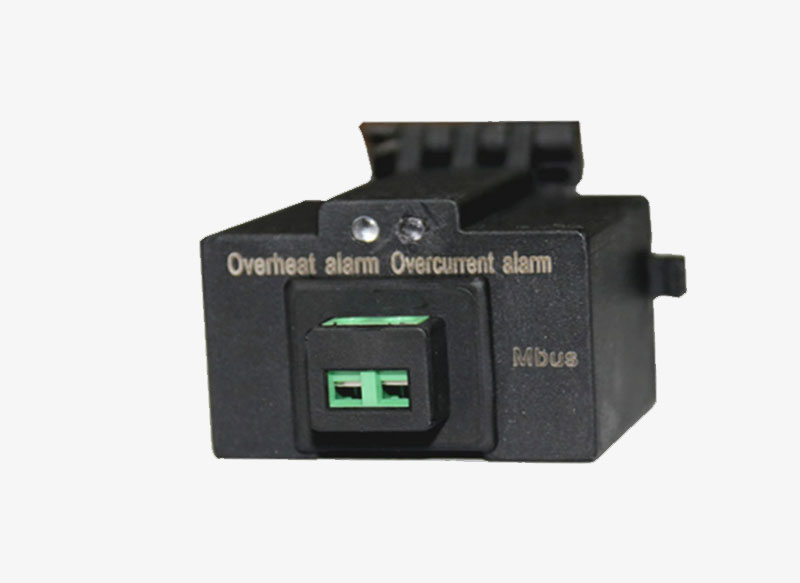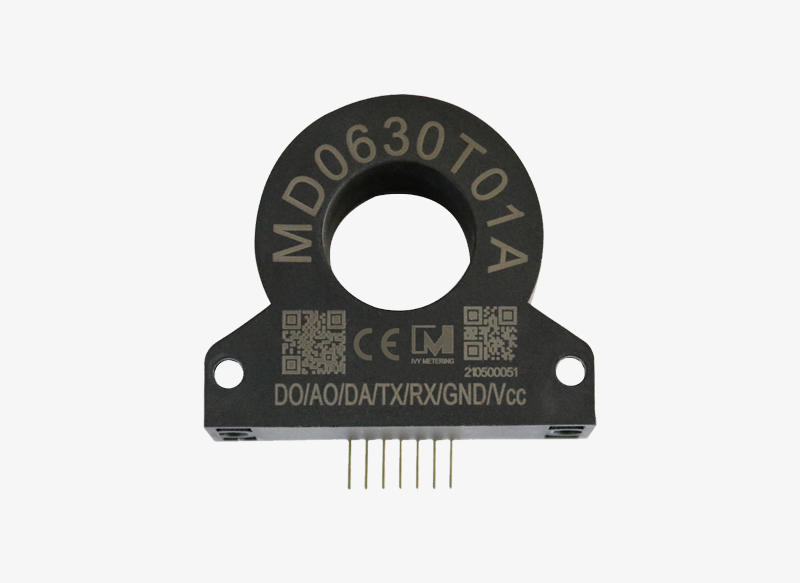Product Details
AC switching elements are a crucial part of safety and protection function in charging stations and cables. Key parts of the IVY line-up are the 40A IM-NE801A 2 pole power relay and 60A IM601 1 pole bistable relay. Which fulfill either IEC 61851-1 or the recent IEC 62955 norm. IM-NE801A main features as follow:
Switching Capacity: 40A 277VAC; Contact Form: 2A; Low Temperature Rise; Sealed Structure to Resist Harsh Environment; UL/TUV Certified, IEC61810-1 Compliant.
The relay has short-time overcurrent characteristics, can withstand three times of 1000A 1ms overcurrent, and the contacts will not be damaged, and can continue to work normally to open and close.
More importantly, the main advantages of lie in large conntact gap:
Its contact distance can be up to 3mm, and the contact spacing of the general relay is about 0.8mm or 1.5mm. In some ways this feature made contact between medium pressure can improve a lot, the higher the withstand voltage value, and also solve the problem of contact resistance increase rapidly, etc, under non-operation status it can avoid wrong operation or damage caused by external factors. which improves the tensile arc resistance of the contact and prolongs the service life of the relay.

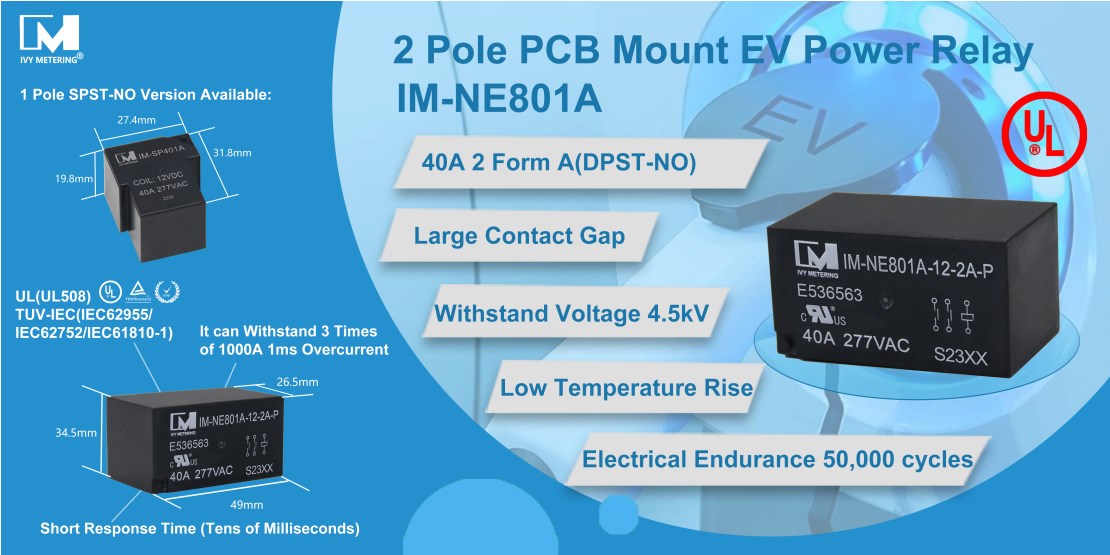
2.Technical Parameters:
| Dimension(mm) | 49×30×26.5 | |
| Weight ( g ) | ≈70g | |
| Contact Arrangement | 2A | |
| Contact Material | AgSnO2 | |
| Environment Temperature | Operation:-40℃~85℃ ; Storage:-40℃~125℃ | |
| Continuous Current | 40A | |
| Max. Switching Voltage | 277VAC | |
| Short-time Over-current | 1000A 1ms Three Times | |
| Initial Contact Resistance | 10mΩ (at 20A) | |
| Insulation Resistance | 100MΩ, at 500VDC, 50%RH | |
| Mechanical Endurance | 1×10^6 ops | |
| Electrical Endurance | 50000 ops@32A 230VAC 20000 ops@40A 230VAC | |
| Power Consumption | 1.8W/3.0W | |
| Rated Voltage | 12VDC/24VDC | |
| Pick-up Time | 30ms. typical | |
| Release Time | 10ms. typical | |
| Dielectric withstanding voltage | Across Open Contact | 801A: 4000VAC 1min |
| Coil to Contact | 4500VAC 1min | |
| Shock Resistance | 20g, 11ms | |
| Dielectric Strength | 500Vrms, 1 min | |
3. EV Charging Solution
Relays and contactors are used to disconnect the cable, or cable socket, from the vehicle in the event of a problem, or at the end of a complete charge cycle. They must be able to break the full AC current to the onboard charger under load in an emergency, but would normally be switching under no, or very little, load current. For this application, traditional AC contactors will suffice, but they are bulky and relatively difficult to package into a small wall-mounted enclosure.
PCB-mounted relays are ideal for these applications, being smaller and less susceptible to the inadvertent operation caused by shock. Domestic systems are usually limited to around 32A. Typically, the requirement is to break both the Live and Neutral for safety, therefore a double pole relay, such as the IM-NE801A, is ideal for this.
